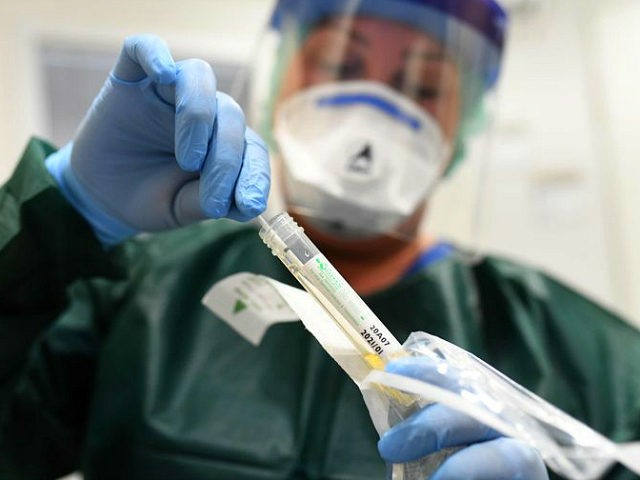Scientists at the University of Washington School of Medicine (UWM) reportedly discarded tens of thousands of Chinese-produced coronavirus testing kits after they discovered last week that some of them showed signs of contamination.
The saga began this month after a local businesswoman employed a Chinese associate to export tens of thousands of testing kits from a Shanghai factory to the United States, according to the Tribune News Agency. UWM spent a sizeable $125,000 on securing the kits, which were flown to America on an Amazon-chartered plane.
After using the kits to ramp up testing across Seattle, which some scientists say is the key to containing the pandemic, a decision was taken last week to stop using all the kits, as some showed signs of contamination.
“I’ve just recommended everyone who has these things pause and not use them at all,” said Geoff Baird, the interim chair of the University of Washington Department of Laboratory Medicine, who helped secure their purchase. “I can’t say I’m not disappointed.”
The issue was reportedly first identified on April 16, when Baird’s colleague noticed that the liquid in some of the vials had changed color, an indication of bacterial growth. Laboratory tests later confirmed the presence of the bacteria Stenotrophomonas maltophilia inside the contaminated samples.
In 2013, the British government released guidance on the dangers of that specific pathogen:
Stenotrophomonas maltophilia is a Gram-negative bacterium found in a variety of environments including soil, water, and plants. It also occurs in the hospital environment and may cause bloodstream infections, respiratory infections, urinary infections and surgical-site infections.
Clinically-significant infections usually only occur in those with significantly impaired immune defences, such as severely immuno-compromised patients. Infections in previously healthy patients are unusual.
Risk factors pre-disposing a hospitalised patient towards infection include prior exposure to antimicrobials (especially broad-spectrum antibiotics), mechanical ventilation, and prolonged hospitalisation. It may also affect the lungs of patients with cystic fibrosis.
Baird said he did not expect any harm to patients because the bacteria appeared in parts of the testing kit that patients are not exposed to.
“We don’t expect there’s any real mechanism of harm to patients,” he said. “It lives on surfaces and it lives on factory things and tubing. I would think it’s in your home, my home, it’s on everything.”
Baird added that the laboratory would also test the swabs for possible contamination.
“We are also, out of an abundance of caution, testing the swabs themselves, which were separately packaged,” he said.
Some 20,000 of the test kits were also sent to Seattle & King County and another 15,000 to the state’s public health lab. Around 12,000 of those tests have now been recalled.
Anita Nadelson, the Seattle businesswoman who helped broker the deal, said her Chinese supplier had promised to refund the investment.
“They’re working diligently to identify and cure the issue,” Nadelson said. “We vetted these as best we could. It’s an unexpected turn on both sides.”
Last week, the United Kingdom similarly spent a staggering £16 million on two million faulty home test kits from two separate Chinese companies. Scientists at Oxford University determined they could not accurately detect the relevant antibodies.
“We should be doing more, but we’ve not seen our volume go up,” Baird said of testing at the UW Medicine Virology Laboratory. “There’s a cap on the amount of testing that can be done globally, and certainly nationally, there aren’t enough kits for swabs and VTM (viral transport media) for testing.”
Follow Ben Kew on Facebook, Twitter at @ben_kew, or email him at bkew@breitbart.com.

COMMENTS
Please let us know if you're having issues with commenting.